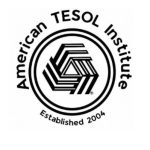Picture this: You’re standing at the front of a classroom, fifty pairs of curious eyes staring at you. You nervously fumble through your notes. Five minutes in, you’ve run out of ideas, and you realize you still have forty-five long, agonizing minutes left to fill. It’s every teacher’s worst nightmare. Suddenly, you’re sweating, time slows down, and you promise yourself—never again. The solution? Lesson planning. Properly preparing for a class isn’t just about survival; it’s about creating an engaging, organized, and enjoyable learning experience for both you and your students.
1. Materials Ready? Stress Less!
The golden rule of lesson planning: be prepared. Teaching without a plan is like flying a plane without a map—you’ll crash before you know it. Make sure your worksheets are printed, your flashcards are ready to roll, and every slide in your PowerPoint presentation is crisp and polished. Preparation eliminates the stress of last-minute scrambling—no more panic-printing worksheets ten minutes before class or praying the internet works while you try to find visuals on YouTube.
When you plan ahead, you’ll sleep soundly knowing you’re ready to hit the ground running. And the payoff? Students will stay engaged with well-prepared materials: dynamic visuals, role-playing exercises, games, and hands-on activities. Young learners especially thrive on movement and variety—when they’re busy learning, they’re less likely to misbehave. Remember: a busy class is a happy class, and a prepared teacher is a confident one.
2. Clear Goals = Focused Teaching
Without clear goals, teaching can turn into aimless wandering. Before you walk into the classroom, ask yourself: What do I want my students to achieve today? Lesson goals give your class structure and focus. If you’re teaching vocabulary, don’t just list the words—think of ways students can use them. If you’re working on past tense, plan a storytelling activity where students share “what they did yesterday.” When the goals are practical, students can see how English connects to the real world—and that’s when learning becomes meaningful.
Students rely on you to guide the ship, so keep the destination in sight. When you know the goals of the lesson, you’ll naturally deliver the material in an organized and relatable way. Bonus: you’ll look confident, capable, and in control. Students will follow your lead because they see you know exactly where you’re taking them.
3. Lesson Planning Tracks Progress
Here’s the secret weapon of every great teacher: record everything. Lesson plans aren’t just for today; they’re a roadmap for the long-term success of your students. By keeping records of what you’ve taught and noting any challenges, you can tailor future lessons to target problem areas. Did the class struggle with listening comprehension? Plan a fun audio-based game next time. Are some students lagging behind in grammar? Set aside time for a mini-review.
Well-documented plans also allow administrators, colleagues, and even parents to understand where the class stands. Long-term planning helps you anticipate what’s ahead, whether it’s tackling more complex grammar, diving into reading comprehension, or prepping for an exam. When you’re organized, you can adapt resources, seek advice from colleagues, or find creative activities online—all because you gave yourself time to plan.
Why It Matters: Teaching Should Be Fun
Nobody wants to be that teacher: the one stumbling through explanations, yelling out of frustration, or awkwardly shuffling through papers while the class spirals into chaos. Proper planning allows you to walk into the classroom with confidence and energy. Students will mirror your enthusiasm and stay engaged when they see their teacher in control. Keep track of their progress, identify individual challenges, and design lessons that include everyone—no child left behind.
And most importantly? If you’re having fun teaching, your students will have fun learning. When you’re prepared, relaxed, and enjoying the process, the classroom becomes a place of curiosity, creativity, and laughter. So plan ahead, stay focused, and let the magic happen. Your students—and your future self—will thank you.
Learn about becoming TESOL certified with American TESOL Institute.



